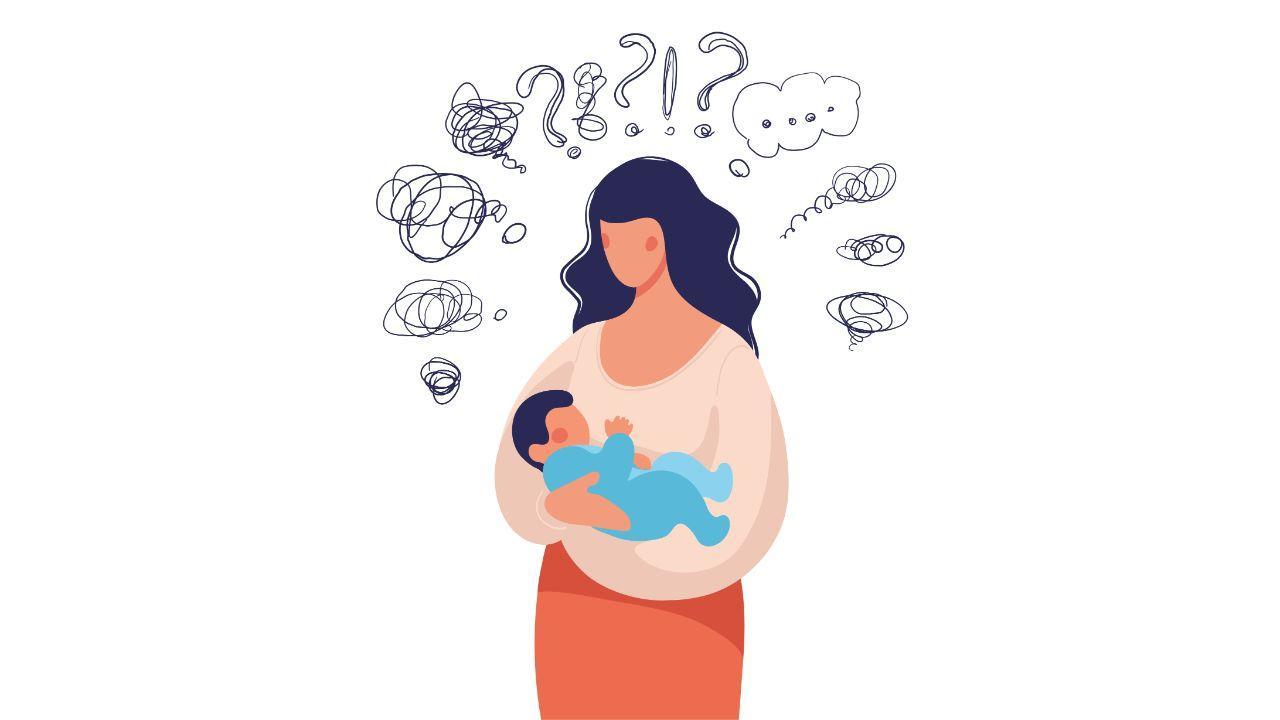The month of May is considered as Maternal Mental Health Awareness Month. Mid-Day.com spoke to two Mumbai-based experts to understand the impact of the pandemic on new mothers and pregnant women, and what can be done to help them

The photo is for representational purpose only
Coronavirus has caused an indelible impact on everyone’s mental health. New mothers and women who are pregnant have been one of the most vulnerable groups during this pandemic.
Psychiatrist Dr Sapna Bangar, who is also the head of Mpower, Mumbai, says that the pandemic adds an overwhelming feeling for pregnant women and new mothers. She says, “For a woman, feeling stressed during pregnancy is common with worries about the wellbeing of her baby.” Along with this, the stress of the pandemic has affected the mental health of pregnant women and new mothers -- causing excess worry, fear of contracting the virus, being isolated, having to go through the birthing process and the challenge of taking care of a newborn especially for first-time mothers without extended support, she says.
Dr Sapna Bangar
The month of May is observed as Maternal Mental Health Awareness Month. The aim is to raise awareness and end the taboo attached with maternal mental health. According to report published in the NCBI website, an estimated percentage of women -- 10–35 per cent -- around the world including India suffer from depression during pregnancy and postpartum. And, due to the uncertainty surrounding Covid-19, it has been observed that there has been “higher levels of depression among women during and after pregnancy.”
India is currently in the middle of an intense second wave of coronavirus pandemic. While it is hard for everyone to cope with such uncertain and grim situations, it is comparatively harder for pregnant women and new mothers because they have to be careful about themselves and also have to be cautious about their newborn or yet-to-be born child.
Speaking about the impact of the pandemic on new mothers and pregnant women, Dr Sonal Anand, psychiatrist, Wockhardt Hospital, Mira Road, says, “Pregnant women are known to be susceptible to emotional ups and downs and stress. Due to the effects of suppression of T cell activities and other physiological body changes pregnant women are more prone to changes in the immune system. Lack of sleep and increased daily stress can give rise to various mental health issues like anxiety, depression.” She adds that new mothers already experience anxiety related to their responsibility. The fear of the pandemic, isolation and lack of social support adds even more pressure as most of them are already bogged down by “haywire timetables and acceptable levels of post-partum blues.”
Dr Sonal Anand
Both experts have noticed the most common maternal mental health issues to be anxiety, depression and sleep issues. Dr Anand says, “Fear of contracting the virus, fear of getting very sick and fear of losing someone are the issues that are being seen. Sleep disturbances and unnecessary negative thinking are affecting mental health adversely.”
While there are no concrete data or research yet on the long term effects of the pandemic on maternal mental health, Dr Bangar opines that any mental health issues in parents, especially mothers, stress or depression leads to an increased risk of attachment disorders, behavioural problems, social difficulties, neurodevelopmental disorders such as ADHD and conduct disorders in children.
Dr Anand concurs, “It is difficult to comment on the long term effects of this pandemic as there is no sufficient data yet. However we know that chronic stress predisposes to rise in mental health issues.”
But like everyone, even new mothers and pregnant women do have to make an effort to take care of their physical and mental health. Dr Anand suggests practicing mindfulness and gratitude can help keep negative thoughts at bay. “Stay away from stressful news and disturbing posts on social media. Focus more on the positives. Music and art can uplift the mood. Focus on healthy eating and adequate sleeping,” she says.
“Being part of support groups helps to exchange information and resources. It is important to stay connected with family and friends so as to not feel isolated. You can always seek professional help,” suggests Dr Bangar.
It is not just these women who have to take care of themselves, their caregivers and loved ones also have an important role to ensure that they are in a good mental space. Being available to them, even if that means remotely, to comfort the pregnant or new mothers to offer support, give advice, share experiences and provide reassurances makes a huge difference. “It can be very daunting especially in India as culturally the pregnancy and early days of birth and newborn care have always been supported by parents or parents-in-law or extended family. So caregivers can help by instilling confidence and reassuring the new mothers. Having virtual contact on a regular basis is important to prevent isolation and feeling overwhelmed and respecting their wishes and decisions about themselves and their newborn,” says Dr Bangar.
Caregivers have to communicate well and also be good listeners. According to Dr Anand, they must listen to the worries, acknowledge them and give answers with realistic reasoning. “Letting the woman know that she has support is all that matters. Keeping the environment happy and stress free is what caregivers should abide with,” she says.
While we all are doing our best to get through a difficult period, it is important that we put extra effort to ensure that our own mental health as well as that of people around us is taken care of. Professional help should be taken whenever necessary and we all should do our bit to remove the stigma around mental health, especially maternal mental health.
 Subscribe today by clicking the link and stay updated with the latest news!" Click here!
Subscribe today by clicking the link and stay updated with the latest news!" Click here!







